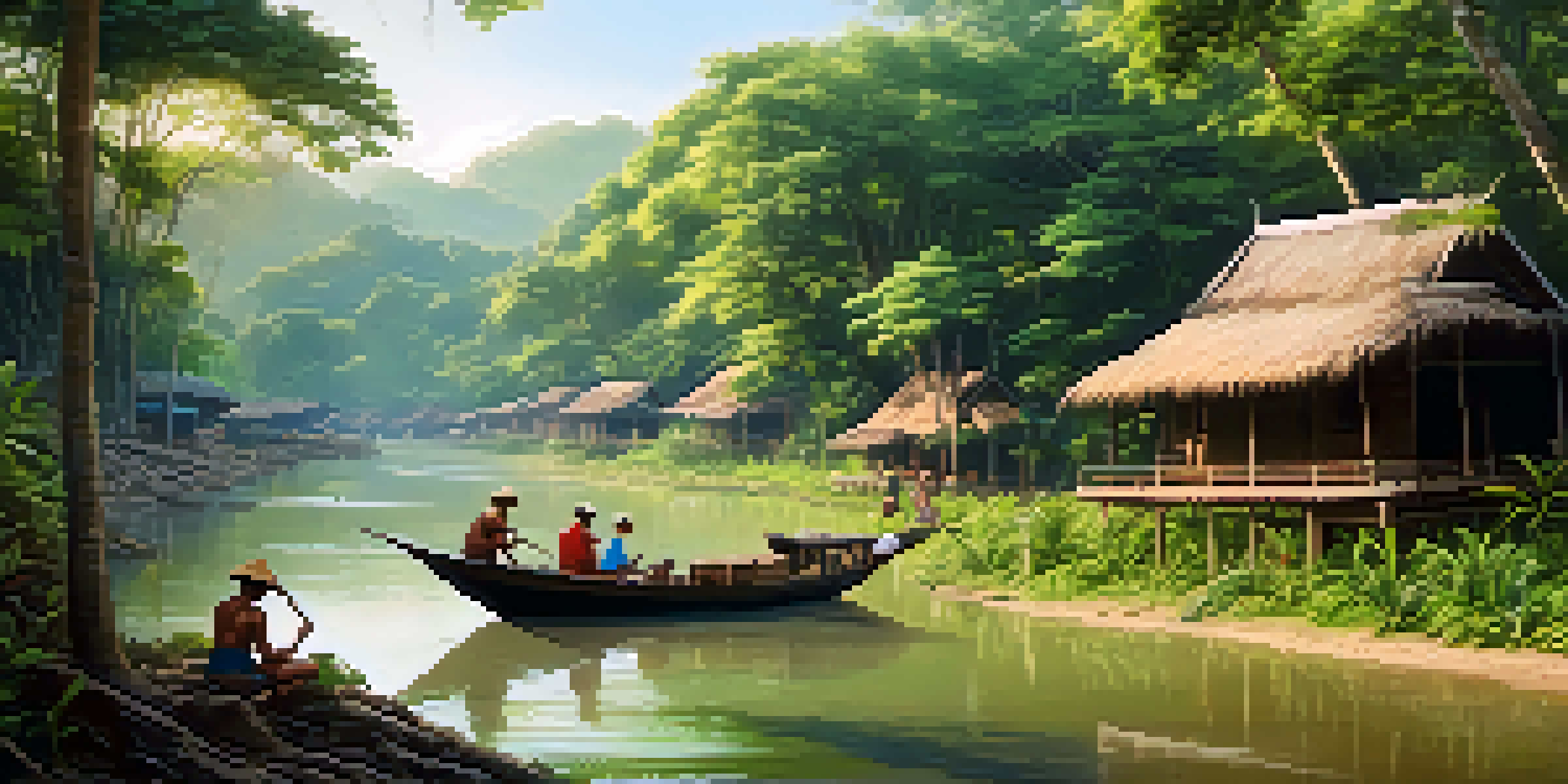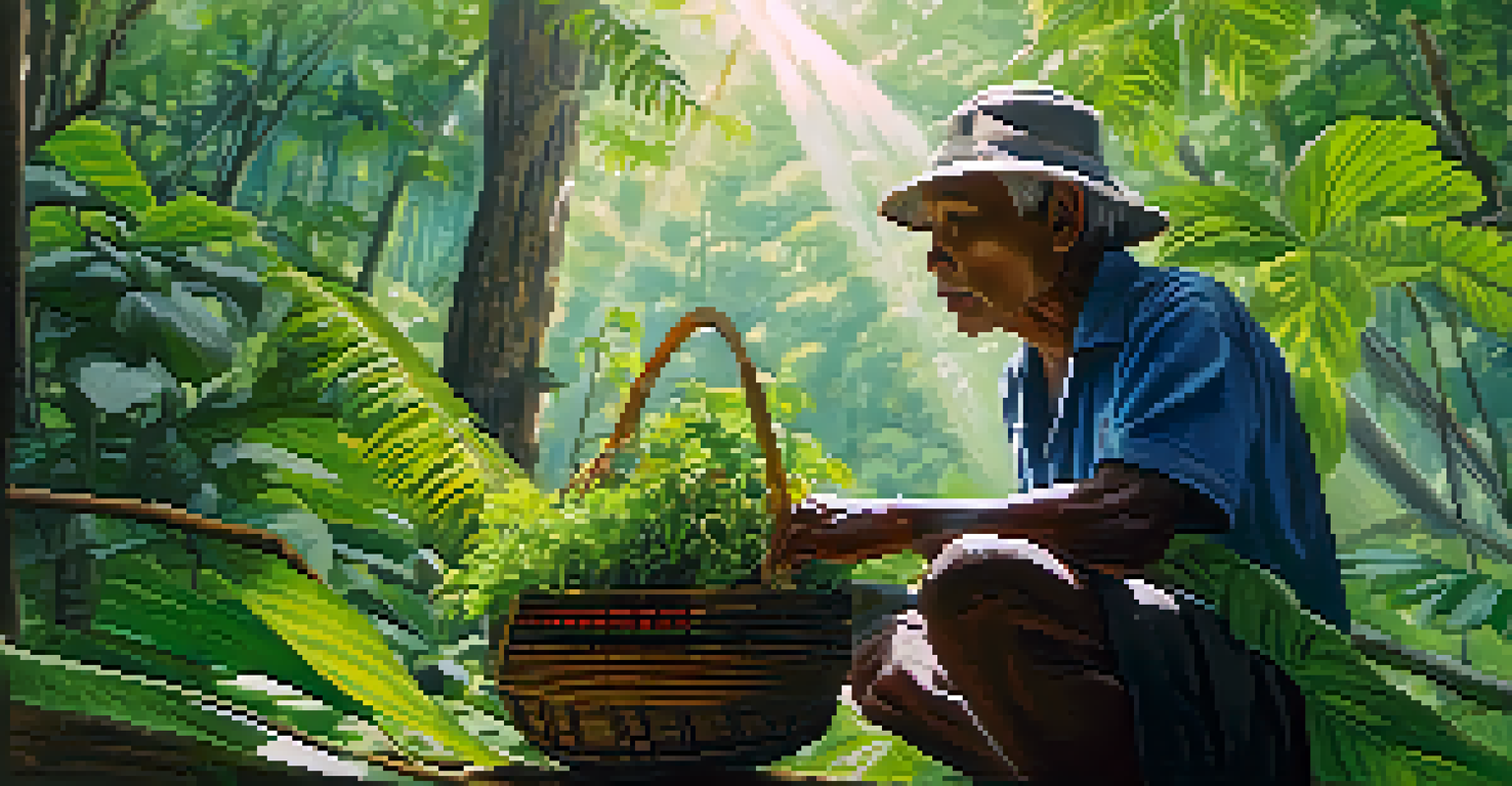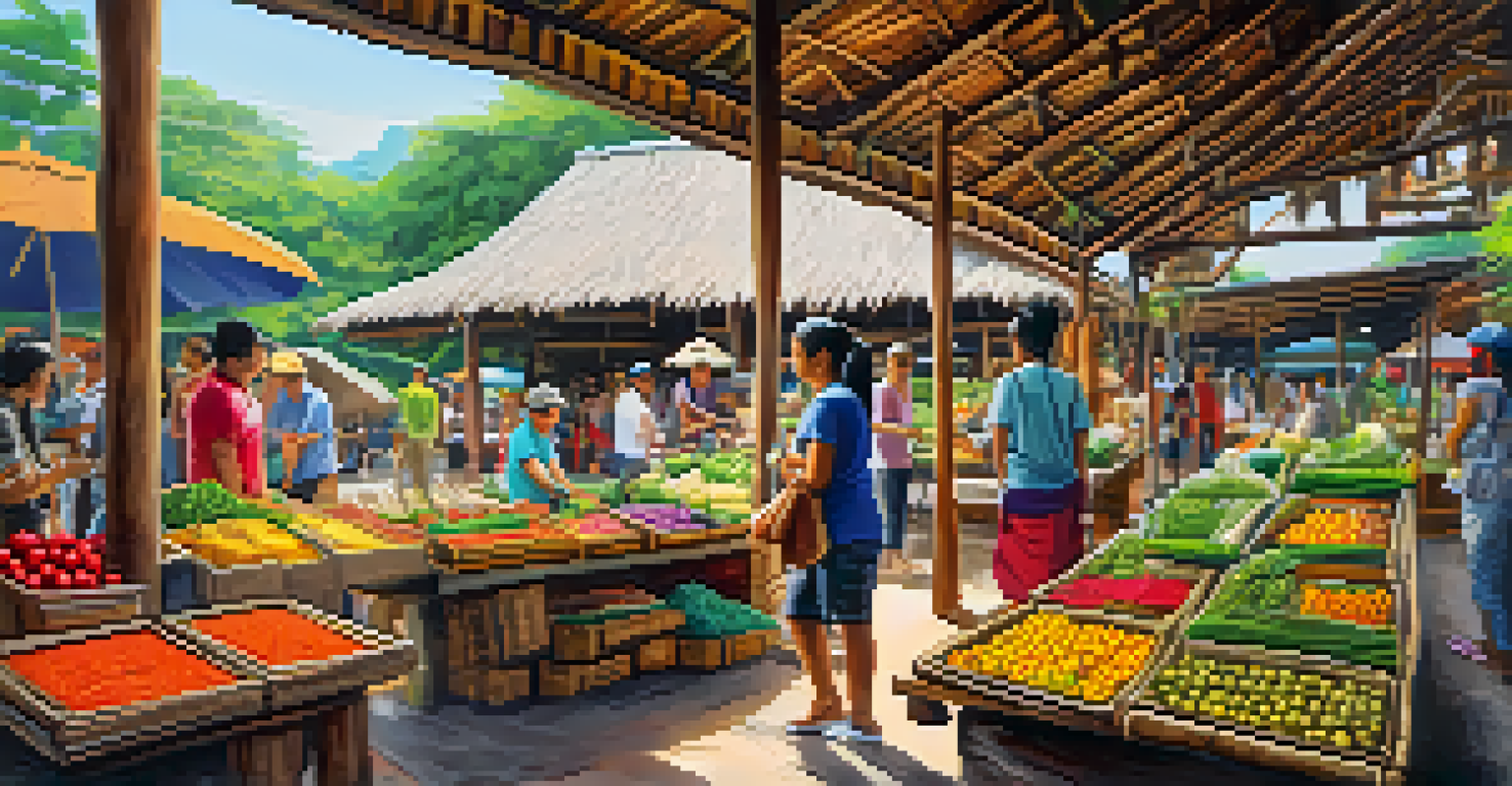Integrating Local Knowledge in Conservation Efforts in Thailand

Understanding Local Knowledge in Conservation Contexts
Local knowledge refers to the insights and practices that communities have developed over generations. In conservation, this knowledge is invaluable because it encompasses an understanding of local ecosystems, species behavior, and sustainable resource management. By tapping into this wealth of information, conservationists can create more effective strategies that resonate with the communities involved.
Local knowledge is the key to sustainable development and conservation.
For instance, local fishermen often possess deep knowledge about fish breeding patterns and seasonal behaviors, which can inform sustainable fishing practices. When this kind of knowledge is integrated into conservation policies, it not only enhances ecological outcomes but also builds trust between local communities and conservation organizations. This collaborative approach fosters a sense of ownership and responsibility towards the environment.
Moreover, local knowledge can help identify cultural practices that promote biodiversity, such as traditional farming techniques that maintain healthy ecosystems. By respecting and incorporating these practices, conservation efforts become more holistic and are more likely to succeed in the long term.
The Importance of Community Engagement in Conservation
Engaging local communities is crucial for the success of conservation efforts. When community members are actively involved in decision-making, their vested interest increases, leading to better outcomes. In Thailand, for example, projects that include local participation have shown higher success rates compared to top-down conservation initiatives.

Involving communities means recognizing their rights and values, which builds a partnership based on mutual respect. Conservationists can benefit from local insights while providing communities with tools and resources to manage their natural habitats sustainably. This two-way street not only empowers locals but also enriches conservation strategies with diverse perspectives.
Local Knowledge Enhances Conservation
Integrating local knowledge into conservation strategies leads to better ecological outcomes and builds trust within communities.
Furthermore, community engagement can also provide economic incentives that align with conservation goals. By promoting eco-tourism or sustainable agriculture, local people can benefit economically while maintaining biodiversity, creating a win-win scenario for both the environment and the community.
Case Studies: Successful Integration of Local Knowledge
One notable example of integrating local knowledge in Thailand is the 'Community Forest' initiative. This program empowers local communities to manage forest resources sustainably, drawing on their traditional practices and understanding of the local ecosystem. As a result, deforestation rates have decreased while enhancing biodiversity and community resilience.
The best way to preserve nature is to work with the people who live in it.
Another example is the collaboration between conservationists and indigenous groups in the Khao Sok National Park. Here, local tribes have shared their extensive knowledge of medicinal plants, leading to successful conservation and restoration projects that also promote cultural heritage and biodiversity.
These case studies highlight that when local knowledge is respected and utilized, conservation efforts can lead to more sustainable and effective outcomes. They serve as a reminder that successful conservation is not just about preserving nature but also about valuing the people who live in harmony with it.
Challenges in Integrating Local Knowledge
Despite the benefits, integrating local knowledge into conservation efforts is not without challenges. One major hurdle is the potential for conflicting interests between local communities and external conservation agendas. Sometimes, conservation goals may inadvertently disrupt traditional practices, leading to resistance from locals.
Additionally, there may be a lack of trust or communication between communities and conservation organizations. If locals feel sidelined or misrepresented, it can create barriers to collaboration. Building genuine relationships and fostering open dialogue is essential to overcoming these obstacles.
Community Engagement is Key
Active involvement of local communities in conservation efforts fosters a sense of ownership and is crucial for achieving sustainable results.
Lastly, the documentation and recognition of local knowledge can be inadequate, especially when it is passed down orally. Conservationists need to prioritize methods that respect and validate these knowledge systems, ensuring they are accurately represented in conservation planning.
Building Capacity for Local Knowledge Integration
For successful integration of local knowledge, building capacity within communities is vital. Training programs can equip locals with necessary skills in conservation practices while also enhancing their ability to contribute meaningfully. This might include workshops on biodiversity monitoring or sustainable farming techniques.
Moreover, funding and resources should be allocated to support local initiatives that leverage traditional knowledge. By investing in community-led projects, conservationists can ensure that local perspectives are not just included but are central to the conservation narrative.
Ultimately, capacity building fosters resilience and empowers communities to be stewards of their environment. When locals feel equipped and supported, they are more likely to engage actively and meaningfully in conservation efforts.
Cultural Sensitivity in Conservation Practices
Cultural sensitivity is crucial when integrating local knowledge into conservation. Conservationists must acknowledge and respect the cultural practices and beliefs of local communities, which often shape their interactions with the environment. Failing to do so can lead to misunderstandings and conflict.
For example, certain areas may be considered sacred by local communities, and conservation efforts must navigate these cultural landscapes thoughtfully. Engaging with local leaders and understanding cultural narratives can help conservationists develop strategies that honor these values.
Cultural Sensitivity Matters
Respecting and understanding local cultural practices is essential for successful conservation initiatives, ensuring effective collaboration with communities.
By fostering an approach that is culturally aware, conservation initiatives can create stronger bonds with communities, leading to more effective collaboration. This not only enhances conservation outcomes but also celebrates the rich cultural diversity that exists within ecosystems.
The Future of Conservation in Thailand
The future of conservation in Thailand hinges on the successful integration of local knowledge. As environmental challenges become more complex, innovative solutions that involve local communities will be essential. By prioritizing local insights, conservationists can develop more relevant and impactful strategies that are tailored to specific ecological and cultural contexts.
Furthermore, as climate change continues to threaten ecosystems, the resilience that comes from local knowledge will be invaluable. Communities that have adapted their practices over generations possess insights that can guide conservation efforts in the face of changing environmental conditions.

In conclusion, the path forward for conservation in Thailand is one that embraces collaboration, respect, and a deep understanding of local knowledge. By working hand-in-hand with communities, the potential for sustainable conservation is not just a dream but a reality that can be achieved.